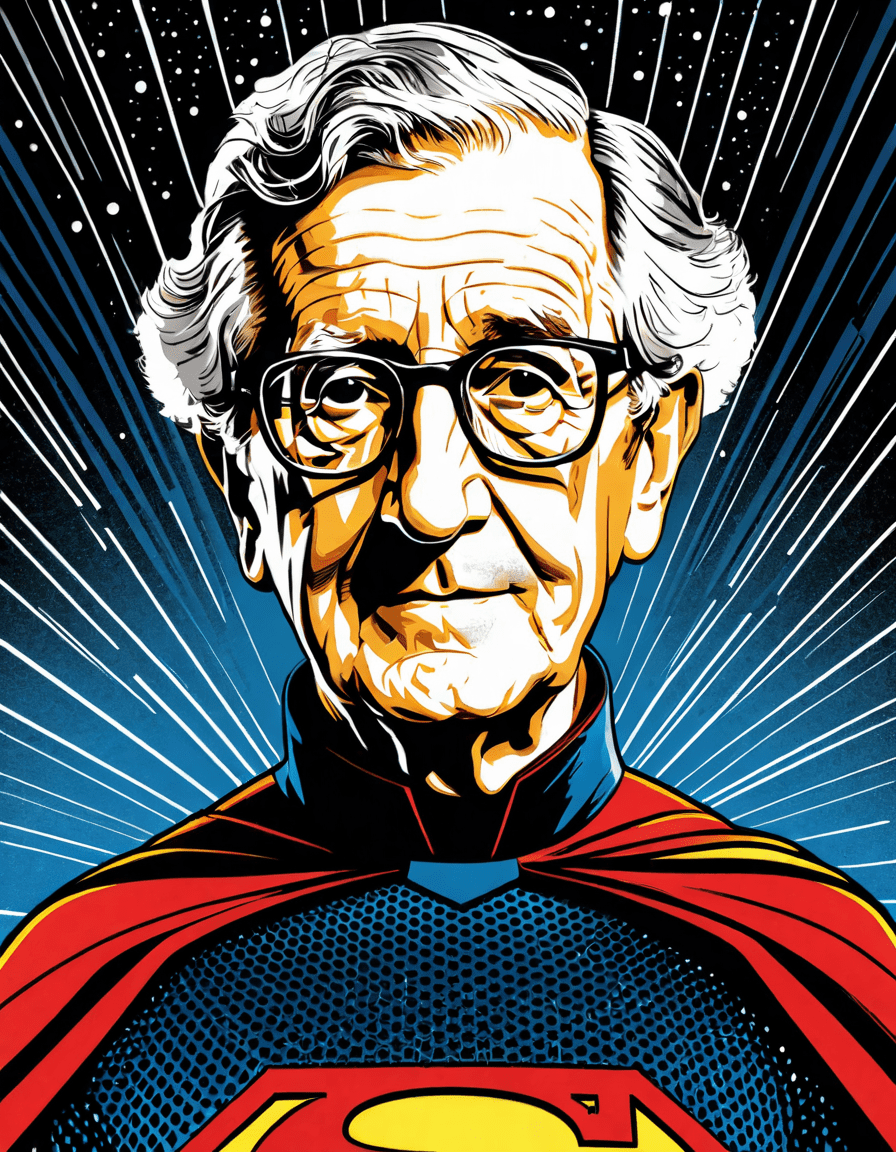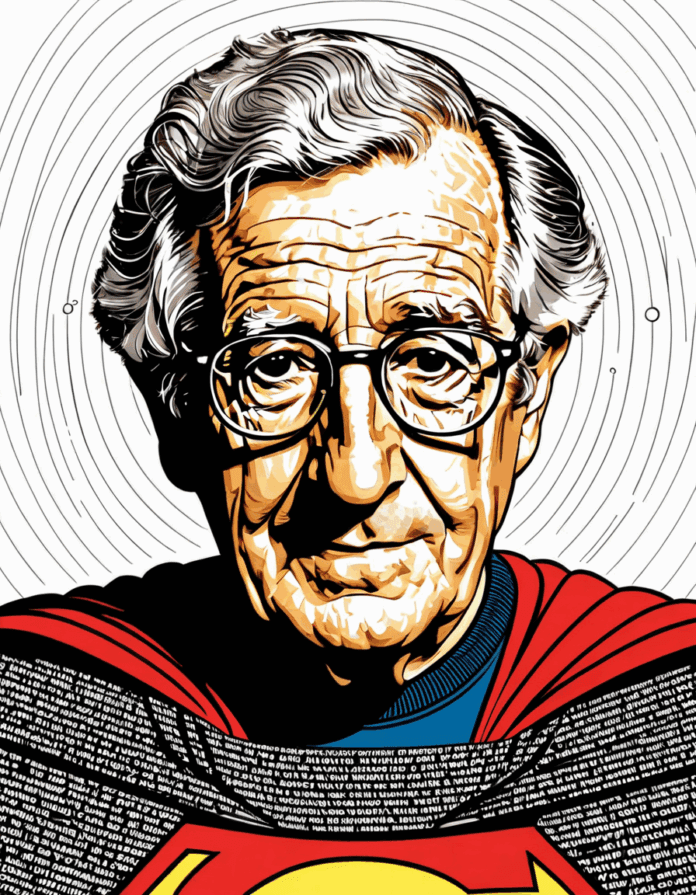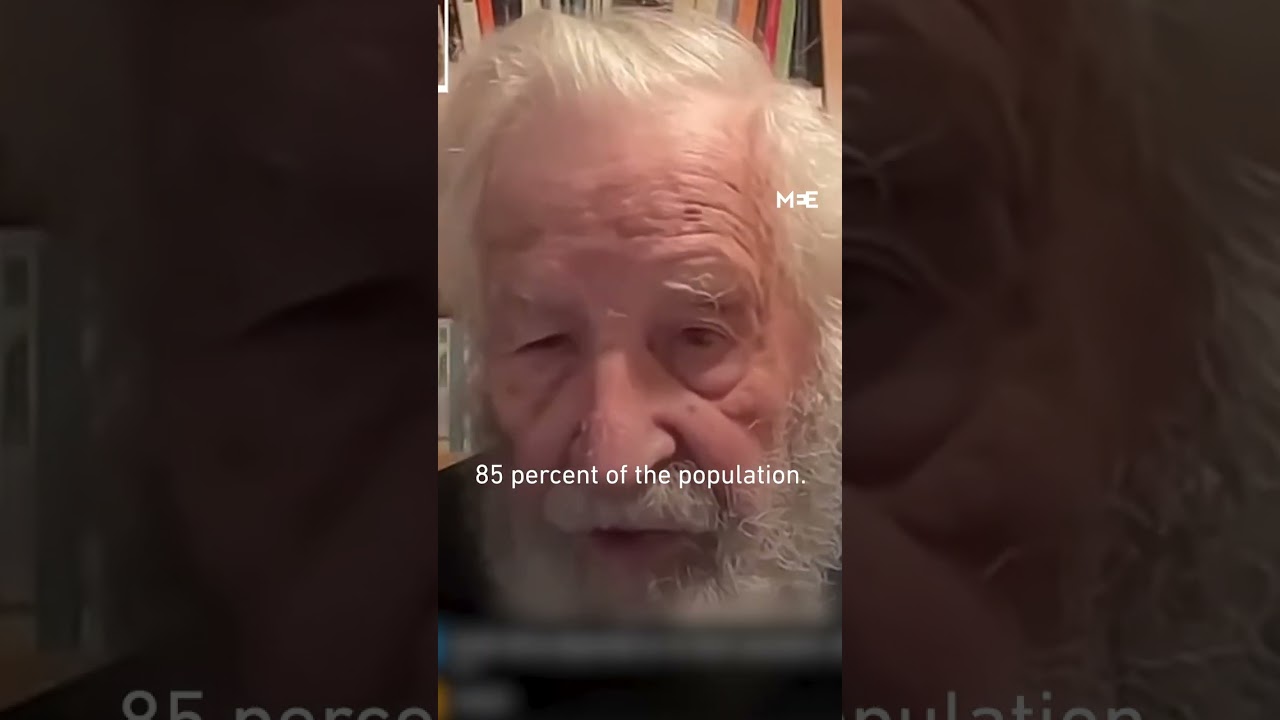Noam Chomsky, often hailed as the father of modern linguistics, has reshaped our understanding of language and cognition. His profound insights into the intricacies of language structure and development have not only influenced linguistics but also various fields, including psychology, philosophy, and cognitive science. This article explores Chomsky’s revolutionary contributions to the field, as well as examining how his ideas have permeated popular culture and influenced notable figures in various industries. So, grab a seat and let’s dive into Chomsky’s genius!
7 Key Contributions of Noam Chomsky to Linguistics and Beyond
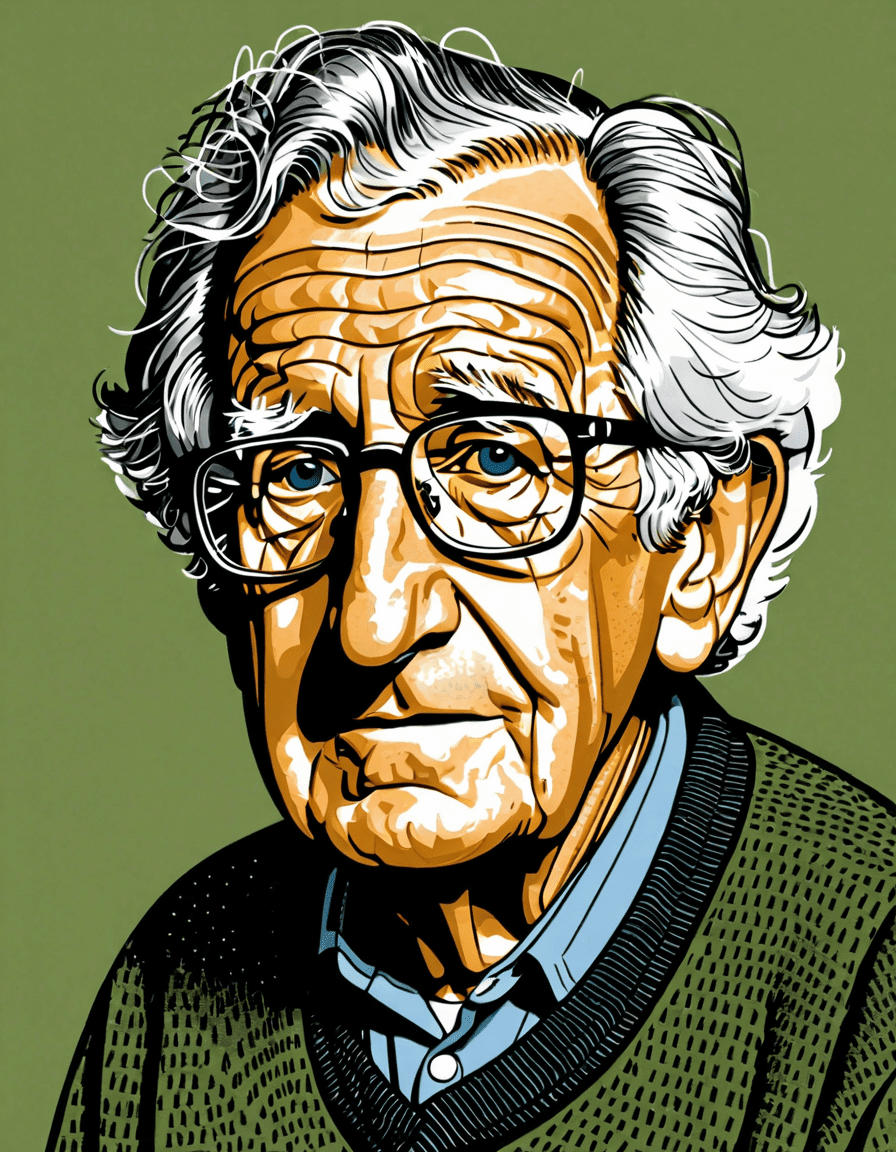
1. The Theory of Universal Grammar
At the heart of Chomsky’s work is the theory of Universal Grammar. This groundbreaking idea suggests that all human languages share a common underlying structure. Talk about a game changer! Imagine realizing that our ability to learn and use language is wired into our brains. It ignited fierce discussions among educators, psychologists, and neurobiologists, forever altering the landscape of language acquisition.
With Universal Grammar, Chomsky paved the way for further exploration into how children pick up languages so effortlessly. It’s like they’ve got a secret code! The implications of this theory have rippled through the years, shaping how we understand cognitive development and even fueling debates on bilingual education.
2. Transformational-Generative Grammar
Next up is Chomsky’s transformational-generative grammar. This innovative framework systematically describes the syntactic structures of language. Essentially, it allows linguists to analyze how different languages can create endless sentences from a finite set of grammatical rules. It’s like having a linguistic Swiss Army knife!
This approach has sparked greater insights in computational linguistics and artificial intelligence. Chomsky’s work laid the foundation for various AI applications, helping machines to understand and produce human language. Companies like OpenAI and Google have drawn heavily from Chomsky’s theories, further emphasizing how his influence extends into cutting-edge technology.
3. Critique of Behaviorism
Chomsky shaken things up with his robust critique of behaviorism, particularly in language acquisition. In his famous review of B.F. Skinner’s “Verbal Behavior,” he challenged the view that language is solely learned through environmental stimuli. Oh boy, did he stir up a hornet’s nest!
He argued that children’s ability to create novel sentences couldn’t just be chalked up to imitation or rewards. This insightful critique shifted educational theories, influencing how language is taught across the globe. As a result, many educators began to recognize the nuances of innate language abilities, fundamentally reshaping pedagogical strategies.
4. Political Activism and Linguistics
But wait, there’s more! Chomsky isn’t just a linguistics wizard; he’s also a fervent political activist. His critiques of U.S. foreign policy and corporate influence reveal the deep connection between language, power, and ideology. Language isn’t just about grammar and syntax; it’s also a tool for social justice.
Prominent figures like Colin Kaepernick have taken a note from Chomsky’s playbook. They utilize their platforms to advocate for systemic change, echoing Chomsky’s idea that understanding language is essential for progress. Talk about using words to change the world!
5. Influence on Artificial Intelligence
Speaking of impact, Chomsky’s theories on language have significantly affected the field of artificial intelligence (AI) and natural language processing. His insights into syntax and semantics provided crucial concepts for developing systems that comprehend and generate human language.
With AI technology on the rise, innovators in the tech world have embraced Chomsky’s work. Companies like OpenAI have advanced natural language understanding by applying Chomskyan principles, merging linguistics with technology to reshape our interactions with machines.
6. Chomsky’s Collaboration with Filmmakers
In the realm of film and media, directors like Roman Polanski have explored themes of language and communication through Chomsky’s work. His ideas often serve as a backdrop for documentaries and interviews, crafting narratives that unfold complex linguistic ideas in an accessible manner.
These collaborations tightly intertwine linguistics with visual storytelling, allowing viewers to grasp intricate concepts in a cinematic context. It’s like learning about language while being entertained—could it get any better than that?
7. Engagement with Popular Figures
Moreover, Noam Chomsky continues to engage with popular figures beyond academia. Actors like John Krasinski and Nicholas Galitzine have expressed interest in his ideas, sparking meaningful conversations about communication and culture. They show that the relevance of Chomsky’s thoughts resonates across diverse fields—from Hollywood to everyday discourse.
It’s encouraging to see these entertainers carrying the torch, driving home the importance of language in our society. Their engagements help to inspire a new generation, fanning the flames of curiosity about communication and creativity.
Noam Chomsky and the Modern World
The legacy of Noam Chomsky extends well beyond linguistic theory. In a 2026 landscape rich with rapid technological advancement and social transformation, asserting the importance of language as a fundamental aspect of human cognition and interaction is crucial.
Chomsky’s theories intermingle beautifully with contemporary issues—whether in politics, social justice, or digital communication. We face challenges that demand thoughtful dialogue about the nuances of language, making Chomsky’s insights more relevant than ever.
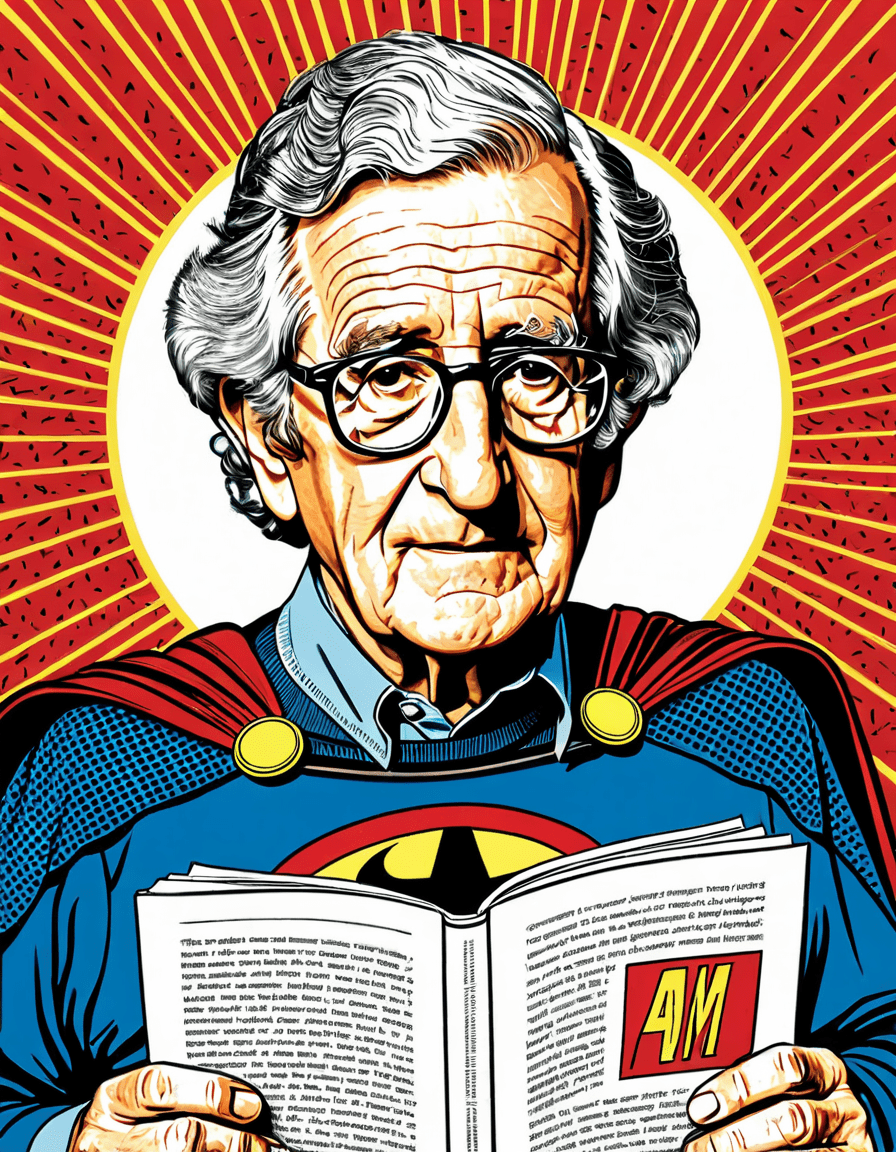
The Enduring Impact of Noam Chomsky’s Philosophy
Chomsky’s revolutionary approach to language has not only transformed linguistics but has also paved the way for interdisciplinary collaboration and innovation. His work continues to inspire scholars and activists alike, creating a lasting impression that reshapes how we communicate, think, and engage with the world.
In tackling issues surrounding communication and meaning, Chomsky’s insights act as a guiding light. Whether we’re pondering political discourse or nurturing interpersonal relationships, his philosophies remind us of the profound connections we share through language. So, the next time you engage in a conversation or see a poignant film, think of Noam Chomsky and his altogether remarkable contributions to linguistics and society.
In the idiosyncratic tapestry of our lives, Chomsky’s ideas resonate, enriching our understanding of the world around us. And for movie and language lovers alike, that’s a story worth sharing!
Noam Chomsky: The Revolutionary Mind Behind Language
A Linguistic Pioneer
Noam Chomsky isn’t just your average linguist; he’s a revolutionary figure whose ideas have shaped modern linguistics. Did you know that he proposed the theory of Universal Grammar? This groundbreaking concept suggests that all human languages share a common structure, which is quite the surprise! It’s this theory that’s turned the study of language on its head, making Chomsky a titan in his field, just like the critical acclaim gathered by the cast of You’re Cordially Invited, who are making waves in their own right. Chomsky’s influence stretches far beyond academia; he’s also been a strong voice in political discourse, questioning military policies and economic systems. If you’re curious about legendary characters in storytelling, check out Descendants: The Rise of Red for some similar ground-breaking narratives!
Trivia That’ll Blow Your Mind
Now, here’s something fun. Chomsky once stated that children’s innate ability to learn language is akin to riding Rollerblades—no one really knows how they pick it up, but once they do, they’re off to the races! This analogy really emphasizes the natural ability we have to acquire language quickly, much like how athletes like Sha’Carri Richardson make track look effortless in their schedule and results. Moreover, Chomsky’s work has been referenced across various forms of pop culture, including classics like The . Just imagine Tony Soprano discussing linguistic theories over a plate of cannoli!
Chomsky’s Impact on Culture and Thought
If you think about it, Chomsky’s influence extends into arts and entertainment, much like the captivating performances of Paz Vega or the buzz around the rumored Daniel Radcliffe Wolverine role that everyone loves to chat about. Each has pushed boundaries in their way, just as Chomsky has in linguistics. His legacy encourages questioning and critical thinking, which is as pivotal for understanding language as it is for appreciating the best TV shows of all time. It’s all interconnected! Noam Chomsky’s work is a continually unfolding narrative, revealing how closely language and thought are tied, urging us to dive deeper into both our history and the stories yet to be told.
